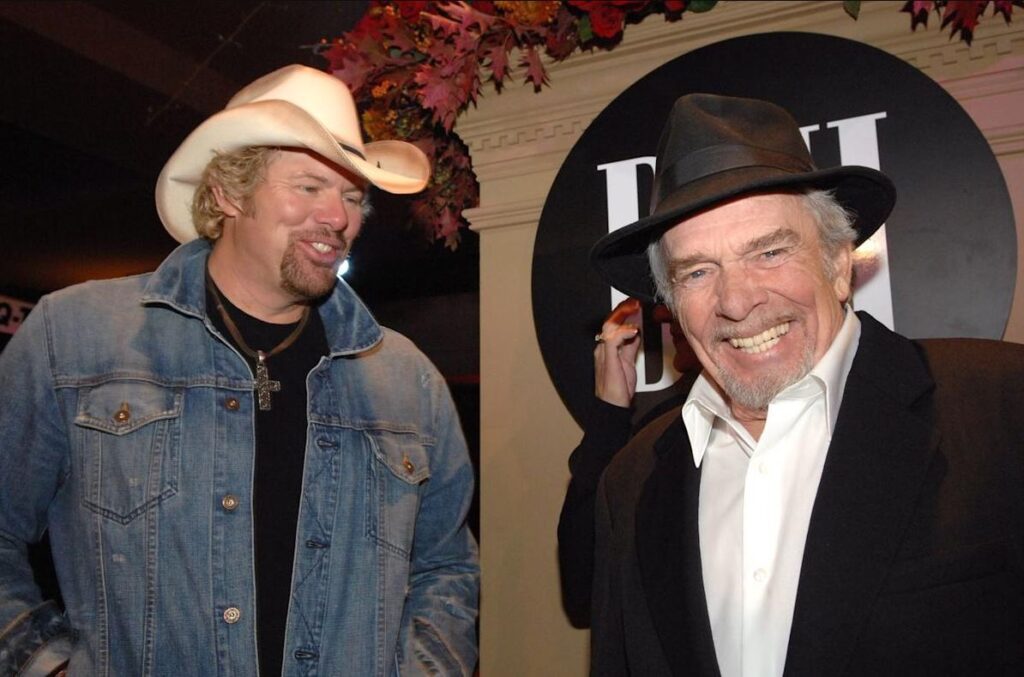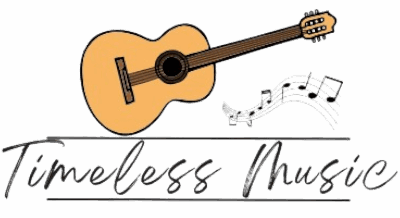
Country music has always been about more than just catchy melodies. At its core, it’s a reflection of real life—stories of hardship, triumph, love, heartbreak, resilience, and the human spirit. Few collaborations capture that essence as powerfully as “Some of Us Fly”, a duet between two country giants: Merle Haggard and Toby Keith.
This song is not just another entry in the history of country music—it’s a moment where two eras meet, where the wisdom of the old outlaw tradition blends with the voice of modern grit and patriotism. The result is a timeless piece of music that speaks to anyone who has ever wrestled with life’s struggles, asked questions about fairness, or searched for meaning in the ups and downs of existence.
Merle Haggard: The Voice of Hard Truths
Merle Haggard was never just a country singer; he was a storyteller whose music grew directly out of his life experiences. From a troubled youth, including time spent in prison, to becoming one of the most respected names in country music, Haggard lived the stories he sang about. His voice carried the weight of every hardship, every wrong turn, and every lesson learned.
By the time he recorded “Some of Us Fly”, Haggard was already a legendary figure. Known for classics like “Mama Tried”, “Okie from Muskogee”, and “Sing Me Back Home”, he had built a career that spoke to the struggles of the working class, the rebellious spirit of America, and the unfiltered truth of life on the edge.
In this song, Haggard takes the lead with a weathered but commanding vocal delivery. His presence grounds the track, giving it a depth that only comes from decades of living, fighting, and surviving.
Toby Keith: The Modern Voice of Country Grit
On the other side of this duet stands Toby Keith, a name synonymous with modern country’s patriotic streak and rough-and-ready attitude. Rising to fame in the 1990s, Keith became known for songs like “Should’ve Been a Cowboy”, “How Do You Like Me Now?!”, and “Courtesy of the Red, White and Blue.”
While Haggard represented the rebellious outlaw of the 60s and 70s, Keith embodied the strong-willed American everyman of the late 90s and 2000s. His music was often defiant, but it also carried a sense of resilience and determination that resonated with millions of fans.
In “Some of Us Fly,” Keith doesn’t overshadow Haggard—he complements him. His voice comes in later, lifting the song with a touch of hope, as if reminding listeners that even in life’s darkest moments, there is still strength to be found and battles to be won.
A Song About Life, Struggles, and Fate
What makes “Some of Us Fly” stand out is not just who sings it, but what it says. The song is less about entertainment and more about reflection. It looks at life in all its complexity—the way some people rise, others fall, and how unfairness often feels like the natural order of things.
Haggard’s verses carry a tone of weariness, almost as if he’s carrying the burden of generations before him. He acknowledges life’s struggles without sugarcoating them, reminding us that not everyone gets a fair share of luck or opportunity.
Then Keith’s contribution brings in a subtle shift. His voice injects a flicker of optimism, suggesting that even if life is tough, there is still dignity in fighting, still value in resilience, and still hope in holding on.
The contrast between the two voices mirrors the song’s central message: some of us stumble, some of us soar, but all of us live within the same human condition.
Why This Collaboration Matters
At first glance, the pairing of Merle Haggard and Toby Keith might seem unusual. One is an outlaw legend from the golden age of country, the other a modern superstar with a more commercial edge. But when you listen to “Some of Us Fly”, the combination makes perfect sense.
Country music has always been about bridging generations—handing down stories, lessons, and truths through song. In this track, Haggard and Keith create a bridge between old and new, reminding us that no matter the era, the struggles of life remain constant.
For longtime fans of Haggard, the song felt like a continuation of his legacy—proof that his wisdom was still relevant in a changing world. For fans of Keith, it was a chance to see their hero step into deeper, more reflective territory, guided by one of the greats.
The Listening Experience
Unlike many modern country hits, “Some of Us Fly” isn’t designed for radio play or honky-tonk sing-alongs. It’s slow, reflective, and meant to be absorbed rather than consumed.
When you listen, it feels like sitting down at the end of a long day and having a deep conversation with two men who’ve seen it all. Haggard speaks first, telling you the hard truths you may not want to hear, but need to. Then Keith follows, reminding you that the story isn’t all despair—that there’s still something worth holding on to.
The song becomes less about melody and more about mood, less about rhythm and more about reflection. It’s the kind of track you play when you’re driving down a lonely highway, or when you’re sitting quietly and thinking about where your own life has taken you.
Legacy of “Some of Us Fly”
Though it may not have topped the charts or become a mainstream anthem, “Some of Us Fly” holds a special place in the hearts of those who value storytelling in music. It stands as a testament to what happens when two artists, from different times and different perspectives, come together for something greater than themselves.
For Merle Haggard, it added another chapter to an already legendary career. For Toby Keith, it showed his willingness to step beyond commercial hits and into something more introspective. Together, they crafted a ballad that still resonates today.
Final Thoughts: Why You Should Listen
If you’ve never heard “Some of Us Fly,” now is the time. Don’t expect a rowdy country anthem or a feel-good radio single. Instead, prepare yourself for something deeper—something that asks you to reflect on your own life while listening to two voices that embody different eras of country music.
Kick back, relax, and let Merle Haggard and Toby Keith guide you through a journey of truth, struggle, and resilience. Because in the end, this song isn’t just about two men singing—it’s about all of us.
